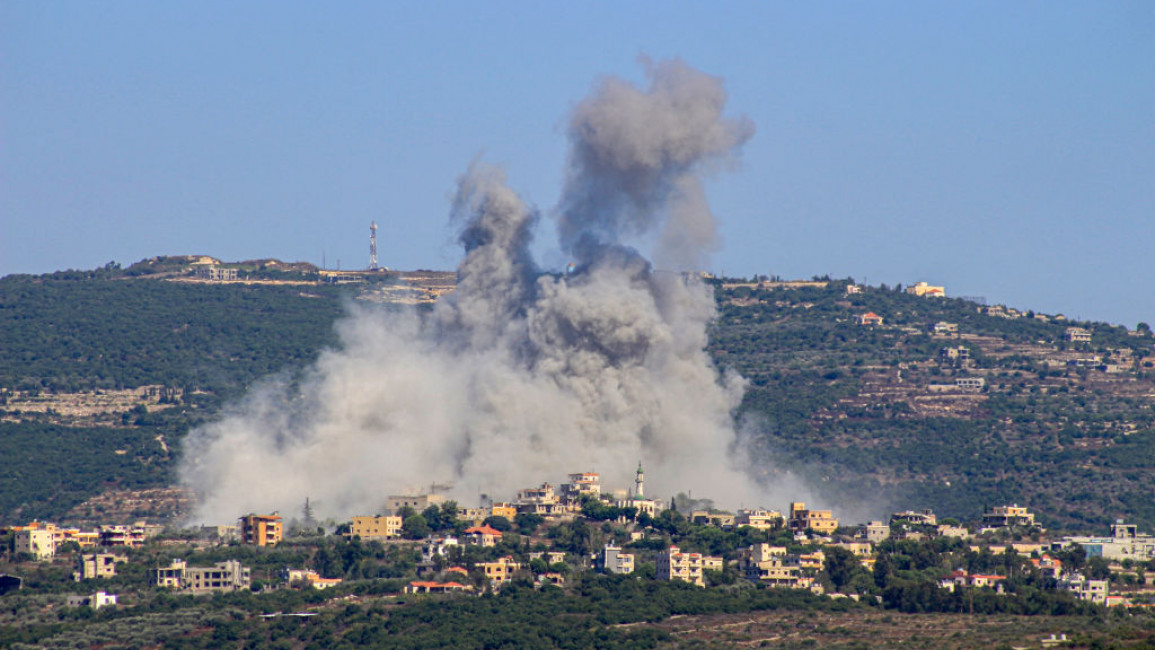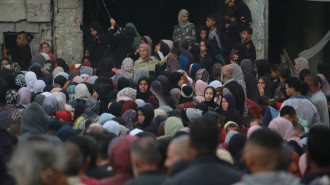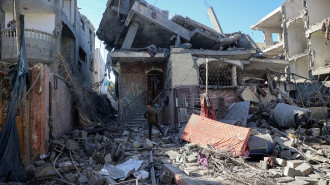Hezbollah evacuates positions ahead of expected Israel raids: source close to group
Hezbollah has evacuated positions in south and east Lebanon after Israeli threats of reprisals for a deadly strike on the occupied Golan Heights, a source close to the group said on Sunday.
Israeli Defence Minister Yoav Gallant vowed to "hit the enemy hard" a day after rocket fire killed 12 people in Majdal Shams, again raisings fears that the war on Gaza will spread.
Israel blamed Hezbollah for firing a Falaq-1 Iranian rocket but the Lebanese group – which has regularly targeted Israeli military positions – said it had "no connection" to the incident and pointed the finger at Israel.
"It was not the first time that Israeli batteries and Iron Dome missiles have missed and backfired to hit areas around Majdal Shams and the occupied Syrian Golan," Hezbollah was quoted as saying by the BBC.
The source close to the group, who requested anonymity as they were not authorised to speak to the media, told AFP that "Hezbollah has evacuated some positions in the south and in the Bekaa valley that it thinks could be a target for Israel".
Hezbollah has a strong presence in east Lebanon's Bekaa valley, which borders Syria, and in south Lebanon, where it has been launching near daily attacks on Israeli positions since the Gaza war began in October.
The cross-border exchanges of fire have largely been limited to the border area, but Israel has repeatedly struck deep inside Lebanon, including overnight.
Hezbollah is also deployed in Syria, where for years it has been fighting in support of regime leader Bashar Al-Assad in his country's civil war.
The Syrian Observatory for Human Rights, a war monitor, said pro-Iran groups and Hezbollah-affiliated fighters have "evacuated their positions" south of the capital and in the Damascus countryside, as well as in parts of the Syrian-controlled Golan Heights, in anticipation of "potential Israeli airstrikes".
Hezbollah had already abandoned positions in Syria in early June after Israeli raids, according to the Britain-based Observatory, which relies on a network of sources on the ground.
Flights rescheduled
Since Syria's civil war erupted in 2011, Israel has carried out hundreds of strikes in the country, mainly targeting regime army positions and Iran-backed fighters, including from Hezbollah.
The raids also seek to cut off Hezbollah supply routes to Lebanon.
Israeli authorities rarely comment on individual strikes in Syria, but have repeatedly said they will not allow arch-enemy Iran to expand its presence there.
Israel's raids on Syria intensified after the Gaza war began, then eased after a 1 April Israeli strike hit the Iranian consular building in Damascus.
That strike prompted Iran to launch a first-ever direct missile and drone attack against Israel on 13–14 April, sending regional tensions skyrocketing.
Lebanon's Middle East Airlines said in a statement that it had rescheduled a number of flights on Sunday and Monday, citing "technical reasons related to the distribution of [aircraft] insurance risks".
In October, the carrier said it was relocating some planes abroad in light of regional developments.
During a 2006 war between Israel and Hezbollah, Israel struck Beirut airport, Lebanon's only international facility.
The cross-border violence since October has killed at least 527 people in Lebanon according to an AFP tally, most of them fighters but also including 104 civilians.
On the Israeli side, 22 soldiers and 24 civilians have been killed, according to Israeli authorities.
Israeli strikes have killed at least 25 Hezbollah fighters in Syria since the Gaza war began, according to an AFP tally.







 Follow the Middle East's top stories in English at The New Arab on Google News
Follow the Middle East's top stories in English at The New Arab on Google News
![At least six paramedics were killed in Israeli attacks on Lebanon [Getty]](/sites/default/files/styles/image_330x185/public/2184721638.jpeg?h=a5f2f23a&itok=WmKSYgXa)

